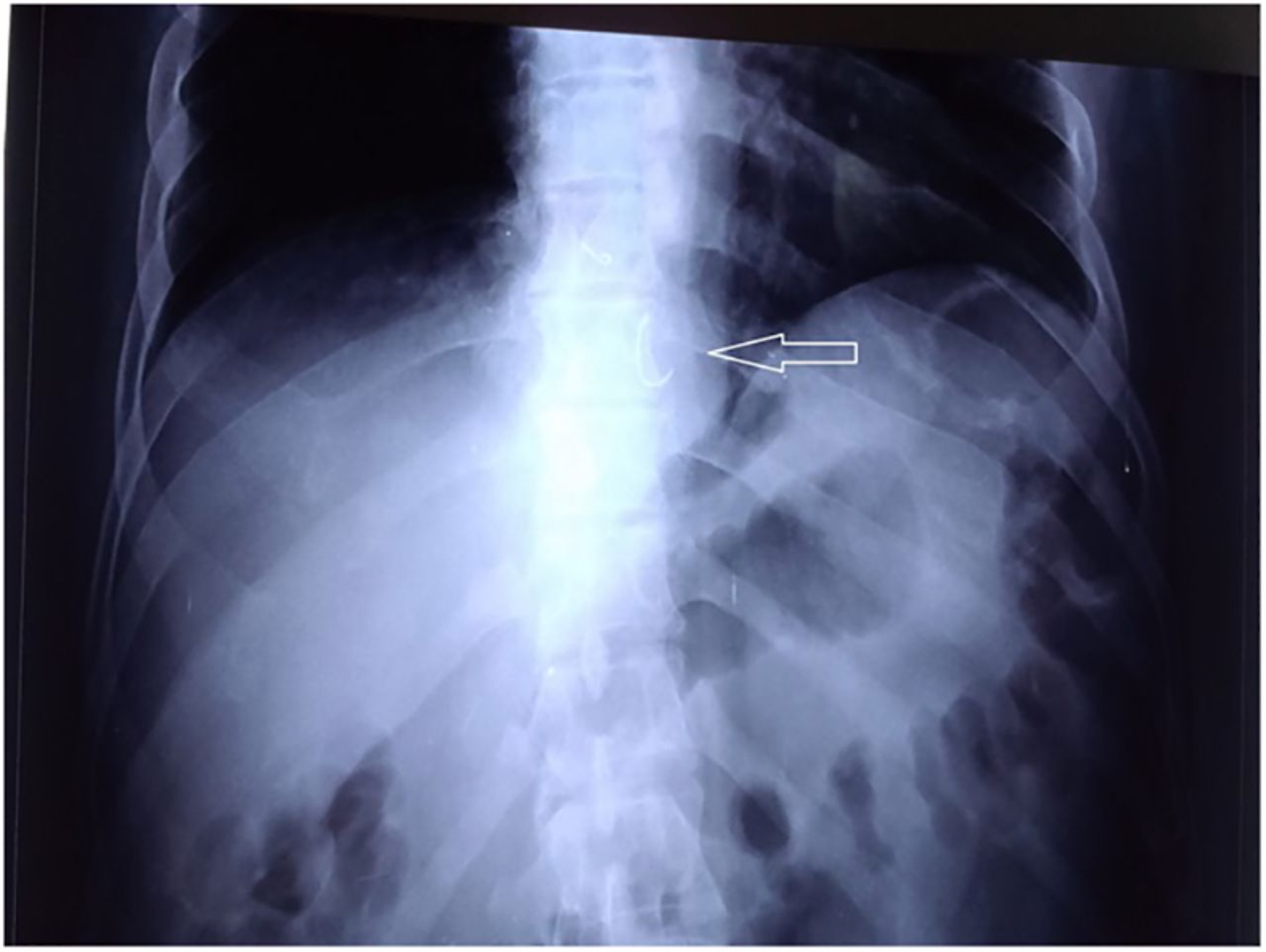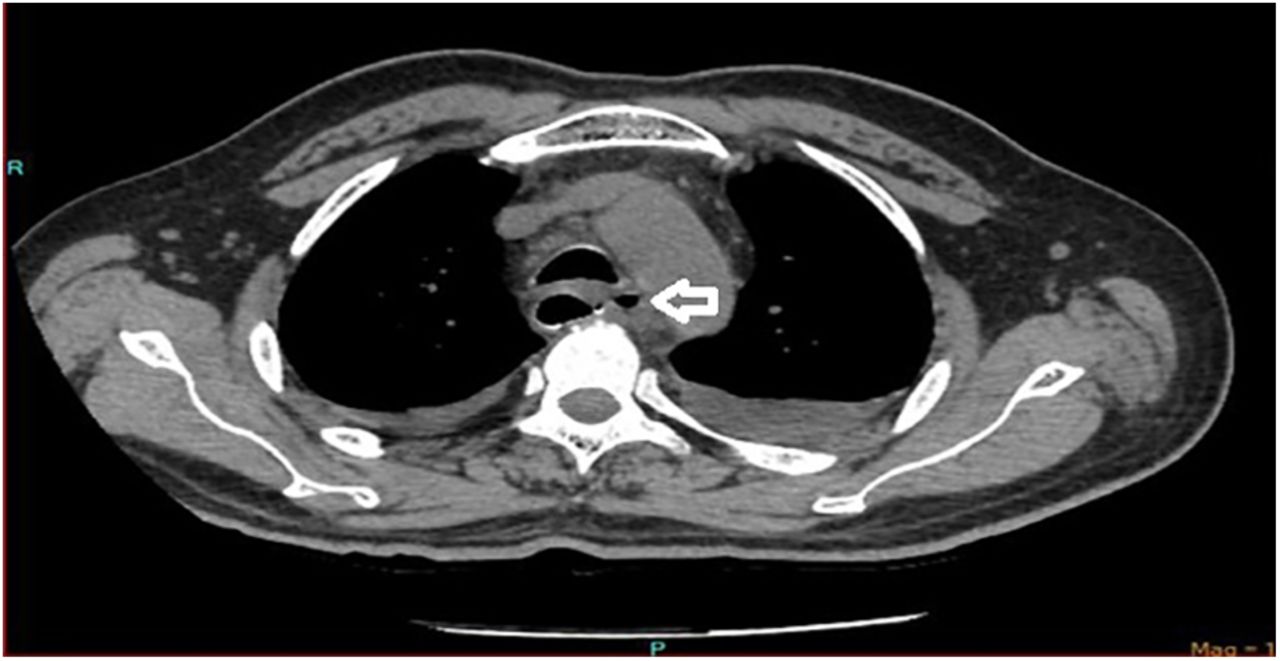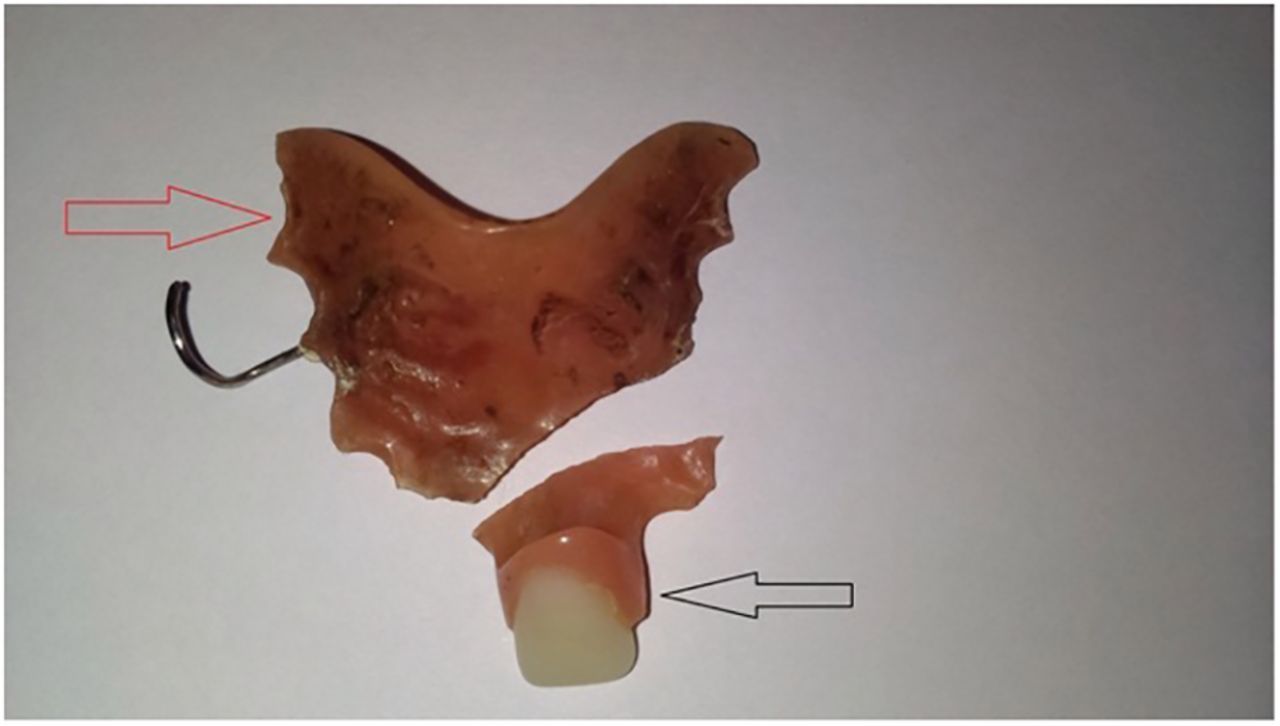Hard to Swallow: Man's Missing Dentures Found in His Esophagus

Eight days after a large piece of a man's acrylic denture went missing, it turned up in an unusual place: his esophagus.
The 55-year-old man in India had inadvertently ingested a part of his denture during an epileptic seizure he experienced while sleeping, according to a new report of the man's case, which was published online Sept. 30 in the journal BMJ Case Reports.
The man wasn't aware that he had had the seizure during the night, however, and when he woke up the next morning, he only noticed that one small piece of his denture was lying on his bedroom floor. Another piece was missing, but the man searched and couldn't find it. With no recollection of the seizure, he decided to just go on with his daily routine.
Five days later, the 55-year-old, who had had epileptic seizures during his childhood and was regularly taking anticonvulsant medications to prevent them, started to have trouble swallowing. He also developed a cough and his chest felt tight, as if food were getting caught in the middle of it. [5 Things You Must Know About Sleep]

His chest pain and difficulty swallowing kept getting worse and after three more days, in December 2014, he went to the gastroenterology department of his local hospital to find out what was wrong with him.
By that time, the man realized that he might have swallowed the broken part of his denture during a seizure, and this was probably the reason for his symptoms, said Dr. Vinoth Boopathy, a gastroenterologist at Mahatma Gandhi Medical College and Research Institute in Puducherry, India, who treated the man and co-authored the case report.
The man underwent a chest X-ray, which revealed that the clasp of the denture was lodged in the lower end of his esophagus (the muscular tube connecting the mouth and stomach).
Sign up for the Live Science daily newsletter now
Get the world’s most fascinating discoveries delivered straight to your inbox.
"His denture got stuck in the lower third of the esophagus, and it could not move down into the stomach," Boopathy told Live Science. One edge of the denture had penetrated the wall of the esophagus, but it wasn't deep enough to cause a hole in the wall, he explained.
Removing the denture
The denture had apparently become dislodged during his seizure and had broken into two pieces — the larger piece slid down his throat, and the smaller piece fell to the floor.
The accidental swallowing of a denture normally constitutes a medical emergency, and healthcare workers usually remove the denture on the same day the ingestion occurs, the doctors wrote in their case report.
But in this man's case, several factors made it tricky for the doctors to remove the denture from the man's body. The broken denture was stuck in the esophagus in a position that made it tough to reach, Boopathy said.
Moreover, the size, shape and contour of the jagged-edged denture made it hard for doctors to grasp it with forceps and other medical instruments. Another tricky aspect was that the doctors couldn't see the denture's sharp metal clasp, which usually held it in place in the man's mouth, because it was on the other side of the denture they could view, Boopathy said. The doctors could only hope that the clasp wasn't cutting the man's tissues as they removed it.

It took several attempts and two different techniques before doctors successfully removed the denture from the man's esophagus.
After the procedure, the man experienced complications from his treatment that kept him in the hospital for another two weeks. He developed a fever, needed antibiotics and had a minor tear in the upper part of his esophagus, Boopathy told Live Science.
However, when the doctors last saw the man, in August 2015, he was doing well and had no swallowing problems.
But doctors encouraged him to replace his denture with dental implants.
Although dental implants and bridges are more costly than removable dentures, certain patients should definitely choose nonremovable dentures, Boopathy said. These patients include people who may be more prone to accidental denture ingestion, such as individuals with seizures, alcoholics and drug addicts, he said.
Boopathy said that he has treated many cases of people accidentally swallowing their dentures, and almost all of them involve removable acrylic dentures.
To help prevent these accidents, people who wear removable dentures should take them out before going to bed, see their dentist regularly and have their dentures adjusted or replaced if they fit poorly or are damaged, Boopathy advised.
Follow Live Science @livescience, Facebook & Google+. Originally published on Live Science.
Cari Nierenberg has been writing about health and wellness topics for online news outlets and print publications for more than two decades. Her work has been published by Live Science, The Washington Post, WebMD, Scientific American, among others. She has a Bachelor of Science degree in nutrition from Cornell University and a Master of Science degree in Nutrition and Communication from Boston University.










